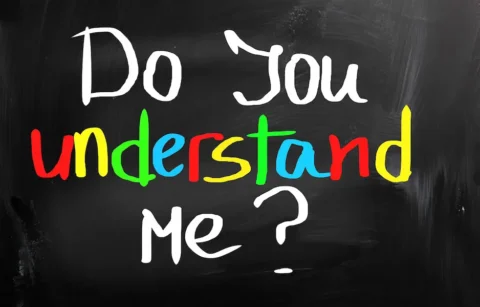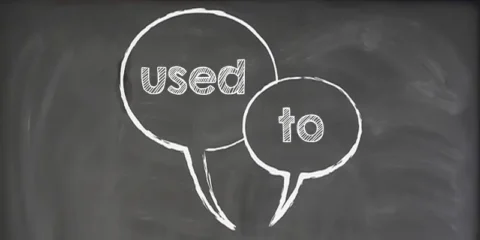What are concept questions?
Concept questions (also referred to as concept checking questions or CCQs) are questions designed to check learners’ understanding of a language item.
How do we make concept questions?
To formulate effective questions, we need to keep in mind several key points:
- Concept questions need to cover every aspect of the meaning of the language item.
For example:
- “You don’t have to do your homework”.
Is it necessary to do your homework? (no)
This question checks one aspect of the meaning, but is not enough to cover every aspect, and doesn’t address the possible (and common) confusion with “mustn’t”. We need to add at least one more question to overcome this:
- “You don’t have to do your homework”.
Is it necessary to do your homework? (no)
Can you do your homework if you want to? (yes)
Here’s another example:
- “an oven”
Can you cook food in it? (yes)
This question covers perhaps the most important aspect of the meaning of “an oven”, but doesn’t distinguish between “an oven” and “a microwave”, “a saucepan”, or anything else that you could conceivably cook food in. We would need to add some more questions to eliminate these other possibilities.
- “You don’t have to do your homework”.
- Concept checking questions shouldn’t use the target language.
For example, to check understanding of past progressive used to interrupt another action in the past:
- “I was eating dinner when you called”.
Was I eating dinner before you called?
The question attempts to address one of the aspects of the meaning (the action started before you called) but it uses the very same language of which we are trying to check the understanding.
So we need to formulate our questions in another way:
- “I was eating dinner when you called”.
Did I start eating my dinner before you called? (yes)
Did I stop eating my dinner when you called? (maybe)
Verb forms like this lend themselves very well to having their understanding checked with timelines. If you are referring to a timeline on the board with the short “past simple” action already marked, you could reformulate your questions like this:
- When did I start eating dinner?
When did I stop eating dinner?
- “I was eating dinner when you called”.
- Concept questions should check the understanding of the language item, not of the situation.
For example, when checking understanding of mustn’t:
- “You mustn’t walk on the grass”.
Why mustn’t I walk on the grass?
This question, quite apart from using the target language itself (see point 2), is checking understanding of the situation – the reasons why it is forbidden to walk on the grass – and not the meaning of mustn’t. Instead, we need to ask:
- Is it ok if I walk on the grass? (no)
Can I decide? (no)
- “You mustn’t walk on the grass”.
- The questions shouldn’t use language which is overly complicated or long-winded, or more complicated than the target language.
For example:
- “I had my nails done yesterday”.
Did I enlist the services of a beautician and put myself in his charge to undergo a manicure, or did I perform this beauty treatment myself?
This is, of course, an exaggerated example. The type of question, however, is a good one – it asks for a simple choice between two possibilities, and this brings us to point 5:
- “I had my nails done yesterday”.
- Concept questions should, where possible, require a simple yes or no, or a choice between two possibilities.
If you add shades of meaning, nuance and the possibility of debate to the answers, the likelihood of a successful check of understanding are reduced.
So, with the “nails” example, we can ask the same question like this:
- “I had my nails done yesterday”.
Who did my nails? (the beautician)
Or, if you like:
- Who did my nails? The beautician or me? (the beautician)
You could even go further, and present the choice between two possibilities by contrasting the target language with the alternative:
- “I had my nails done yesterday”.
Who did my nails? (the beautician)
“I did my nails last weekend”.
Who did my nails? (me)
Here are a few more examples:
- “She’s just come back from India”.
Did she go to India? (yes)
Did she go a long or short time ago? (a short time ago)
- “If only I’d arrived yesterday”.
Did I arrive yesterday? (no)
Do I feel good or bad? (bad)
- “He’s over the moon”.
Is he happy or sad? (happy)
Is he a little happy or very happy? (very happy)
- “You’d better move quickly”.
Am I moving quickly now? (no)
Is it an obligation for me to move quickly? (no)
Is it a good idea for me to move quickly? (yes)
Might I have a problem if I don’t move quickly? (yes)
(In this last example, depending on the context that you’re presenting it in, you could follow up the last question with “Why?” or “What problem?” – imagine your situation is that the person is running late for a train. The answer to “Why?” would then be “You might miss your train”.)
- “I had my nails done yesterday”.








21 comments
Andrea Goldman
There seems to be this myth that concept checking questions must never contain the target language and yet perpetuators of this myth usually go on to give examples of concept checking questions that do contain the target language: e.g.
‘snow’: Is snow cold? Does it snow in your country? ‘wardrobe’ Do you keep clothes in a wardrobe?’ Would a better rule be that you usually do not use target GRAMMAR in concept checking questions? HELP!
Keith Taylor
A good point, yes. Using the target language is very often necessary when concept checking vocabulary. Your new definition of the rule is a good one for concept checking grammar items.
Amy
Thank you! This information was very helpful in my understanding to ask SIMPLE concept questions relating to the topic/situation.
Elena Nigmand Angelova
Isn’t it more about why we need to ask the concept Qs? And then decide on what we should try and what we should try not to do?
I was also taught concept Qs are very OK with various types of elicitations. Any ideas when?
Johny
Hey! I’m having a lesson on Thursday and I need to know if these CCQs are good.
If I had won the lottery, I’d travel around the world:
– Have I won the lottery?
– Is it possible in my imagination?
– Is it probable that I win the lottery?
Keith Taylor
Have I won the lottery?
I would change this to “Did I win the lottery?”
Is it possible in my imagination?
I think this is a bit too abstract for a concept question – they need to be as simple as possible.
Is it probable that I win the lottery?
I don’t think this conveys the meaning of the sentence. This question would be better for a first or second conditional sentence.
So, we need to think about the meaning of the two parts of the sentence:
Did I win the lottery? (No)
Am I going to travel around the world? (No)
If we look at another example of the same structure:
“If I had done my homework, my teacher would be happy”.
…then the questions would be something like:
Did I do my homework?
Is my teacher happy?
For your particular example, we could perhaps add another one that conveys the meaning of that particular example:
Do I want to travel around the world? (Yes)
…but this isn’t strictly necessary for the meaning of the structure itself.
Hope that helps.
Keith
jack
I am confused now…… You give a good description of using concept questions….. very helpful…… but then Andrea completely debunks your article……. with a very valid point….. and you instantly agree with her……
Also, ‘yes/no’ answers from students? Surely a full sentence answer is better…. and gives the student chance to repeat the target language……
I am not trying to make you people unhappy…… or be arrogant….. I could be wrong…… Be lucky!!
Keith Taylor
Hi Jack
Thanks for your comment. I agree that Andrea’s point was very valid, but I’m not sure I agree that it completely debunks the article.
Her point was about using the target language when concept checking vocabulary, as opposed to concept checking grammar. She added some very useful precision to my point about not using the target language, pointing out that when concept checking VOCABULARY, it can sometimes be okay (and even helpful) to use the taget language in the question.
Hope that helps.
Parisa
hey there.
thanx for ur helpfull points.
What about the passive voice. How can we check this?
It’s the most difficult part of teaching grammar I think.
Anna
Anyone know a good concept checking question for this? He takes after his father?
Robby Pharona
Supposing the subject’s name is Jack, the following questions pertains: “Is similar to his father?”
If you were to dig for further understanding, “Whom do you take after?”
I disagree that you should always be seeking yes/no answers in CCQs. A student has a 50% chance of success from the beginning. Terrible idea.
Spastic Tactician
Nail: Hit right on the head. I don’t care what kind of answer a student gives as long as I haven’t provided her a 50% or better chance of success whether she understands or not. If the point is to actually (as opposed to nominally) check true comprehension, yes/no, T/F, A or B answers are just plain ineffective. I like to ask students to use the language correctly in a new and different sentence/situation. This assesses comprehension of form, vocabulary, communicative function, and register, all while also having the student actually manipulate the language. I don’t particularly care how accurate they are at this stage, nor how fluent, only that they can show me an understanding of the concepts at work. Without that, it is about 50% probable that you’ve just wasted everybody’s time.
jay
hello any idea on how to elicit the usage from students and the description of the usage in a lesson plan
Ruth Greene
Do you think CCQ can be used in other subjects? For example, where foreign learners are in a mainstream school and the teacher is not sure if they have understood some concept in physics, maths, English Lit etc?
Keith Taylor
I don’t see why not!
Paloma
Are these “good” concept questions to check understanding of Passive voice?
“What is important in this sentence the person or the action?”
“Do I know who did the action’?
“Do I need to know?”
Thanks
Keith Taylor
Hi Paloma
I think it would depend a little on the particular passive sentence and the reason for using passive voice instead of active voice. But, generally speaking, your questions are good, and would work for a large number of passive sentences.
Andrew Goddard
There is, I think, an obvious flaw in the whole idea of very simplistic concept check questions of this nature, which is this: They run contrary to the whole idea of teaching using the communicative method (given that they are binary questions that require one word answers).
I also believe that many users may find them patronizing, particularly if the lesson is in a one-to-one context.
In the context of a one-to-one lesson, it’s better, I think, to invite a student to talk about the target language as a means of seeing whether they have understood. For example, with the oven:
“What types of food can you cook in an oven?” “Are there some foods (e..g pizza) that can only be cooked in an oven?” “What was the last thing that you cooked in an oven?” If they start talking about peas then it’s likely that they’ve not understood
Spastic Tactician
I agree 100%. What you have described is an actual assessment of comprehension that cannot be successfully navigated without… Y’know… actually comprehending the material in question. Where do I subscribe to your newsletter?
alkaris
Hi everyone!
I agree with the point that we need to distinguish between ccQs that are designed to check understanding of the meaning of a vocabulary item and those that are designed for a grammar point. As for the example of the “oven” above we could simply use a photograph or a picture and save ourselves the headache. Of course we can not adopt the same technique with “My car was stolen.”
Keith Taylor
Hi Alkaris
I absolutely agree about the “oven” example – there are many other equally effective ways to check understanding, and it’s a case of choosing the most appropriate one for the item you’re checking. Have a look here for some of these:
https://www.eslbase.com/tefl-a-z/checking-understanding